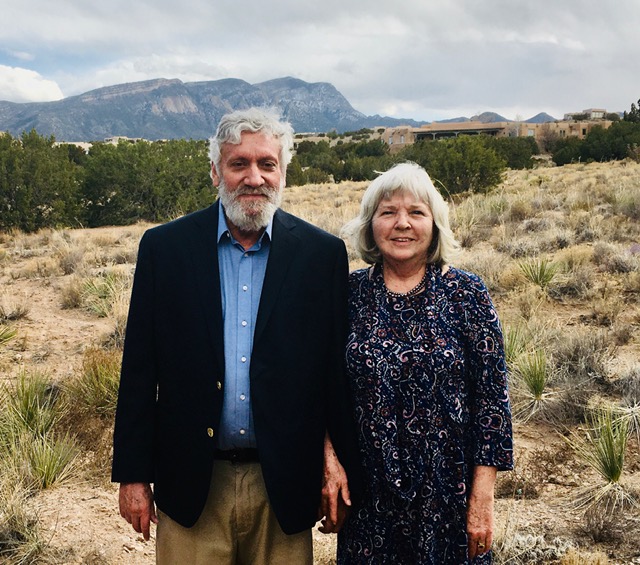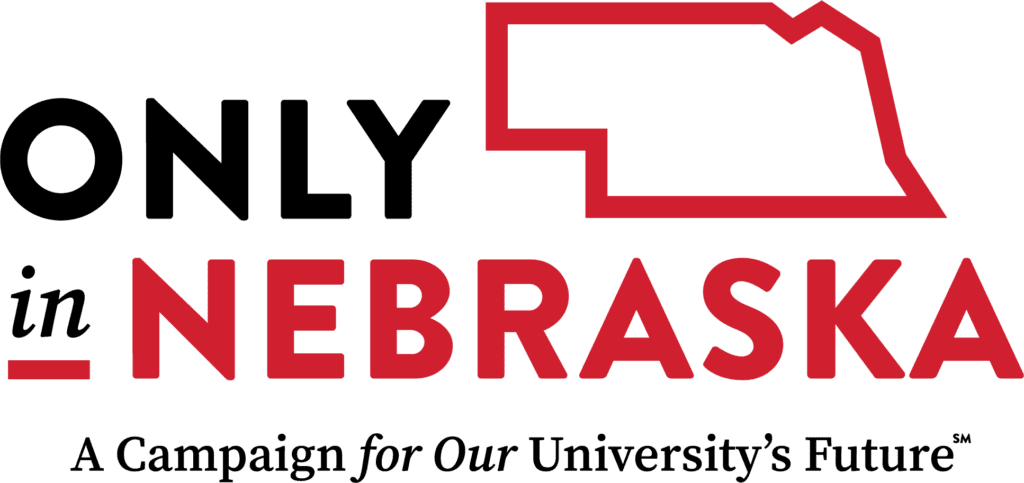Former faculty member, wife give $1.2M for human rights program


Support for human rights teaching and research programs at the University of Nebraska–Lincoln is behind gifts of more than $1.2 million from Robert “Bob” Hitchcock and Melinda Kelly.
“Looking around the globe, Melinda and I see local, national and international human rights abuses, forced migration, genocide, gender-based violence and a global pandemic, which increases the burden on already troubled communities,” Hitchcock said. “This strengthens our desire to collaborate with UNL and its faculty and students to bring more attention to human rights issues and to work toward durable and long-lasting solutions.”
The couple has established the Hitchcock Family Chair in Human Rights and Humanitarian Affairs as a permanently endowed fund with a $1 million gift to the University of Nebraska Foundation. The chair provides salary, teaching and research support for the director of the Forsythe Family Program on Human Rights and Humanitarian Affairs in the College of Arts and Sciences.
Hitchcock is a former faculty member of Nebraska’s College of Arts and Sciences. He served in the Department of Anthropology for 23 years, including time as chair. He then became anthropology chair at Michigan State University and is currently at the University of New Mexico. Hitchcock and his wife, Melinda Kelly, share a passion for human rights and humanitarian issues. She works with faith-based organizations and the Kalahari Peoples Fund on issues involving indigenous people, refugees and immigrants in Africa and New Mexico. They reside in Albuquerque, New Mexico.
“This is such a valuable investment by Bob and Melinda because it will further elevate the national standing of the Human Rights and Humanitarian Affairs Program and will ensure that we can recruit and retain the very best faculty to lead this vibrant interdisciplinary program for many years to come,” said Mark Button, dean of the College of Arts and Sciences. “I have no doubt that the Hitchcock Family Chair will play a critical role in advancing the important aims of the program.”
Hitchcock and Kelly gave $200,000 to establish the Hitchcock Family Human Rights and Humanitarian Affairs Excellence Fund. This endowment provides broad support for the program including annual support for student research and academic travel, faculty research and travel, funding for guest lectures and more.
“Through their generosity, Bob and Melinda help place UNL among a select group of institutions that emphasizes human rights research and education,” said Courtney Hillebrecht, Samuel Clark Waugh Distinguished Professor of International Relations, associate professor of political science and director of the Forsythe Family Program on Human Rights and Humanitarian Affairs. “It’s a privilege and a responsibility to be part of this esteemed group of universities, and we are mindful of the trust they have placed in us to establish UNL as a leader in human rights.”
David Forsythe, emeritus professor of political science and founding director of the human rights program, said Hitchcock was deeply involved from its start in 1997. He added that Hitchcock and Melinda Kelly have been “enormously helpful” in keeping Nebraska’s program going — and growing.
“It is important that the next generation of leaders understands the importance of fundamental personal rights and the need for continuing efforts to protect them,” Forsythe said. “Human rights ideas and norms do not implement themselves. Moreover, they require constant adjustments to changing times and changing threats to human dignity.”
Hitchcock said that during his years in Lincoln he appreciated seeing the deep commitment of many Nebraskans to human rights, social justice and fair treatment of diverse people.
“UNL recognizes the value of supporting an interdisciplinary human rights program and works hard to make human rights a goal for the university,” he said.
Additionally, Hitchcock and Kelly created the John R. and Karleen Hitchcock Memorial Fund with a gift of $30,000 to commemorate the lives of Bob Hitchcock’s parents. The endowment provides broad support for students enrolled in the Department of Anthropology through undergraduate scholarships, graduate fellowships, internships, student research, travel or other types of student aid.
Hitchcock and Kelly intend to use estate gift planning to provide additional contributions to the funds they have established.
“Bob and Melinda’s generosity is truly transformative for the College of Arts and Sciences,” Button said. “Their vision for the college is deeply consistent with ours, and we are extremely grateful to them.”
About John and Karleen Hitchcock
John “Jack” R. Hitchcock Jr. and Karleen Sleeper Hitchcock were both born in California in 1912. He was from Los Angeles, and she was from nearby Riverside.
Jack Hitchcock graduated from Stanford University in 1934 and worked for oil companies in California and Texas before joining the Arabian American Oil Company in Saudi Arabia. He served in the U.S. Marines from 1942 to 1946. Upon returning to ARAMCO, he became superintendent of oil production in Abqaiq, Saudi Arabia, and retired in 1964.
Karleen Sleeper graduated from the University of California, Los Angeles in 1934. She served as administrative assistant to Alden Winship “Tom” Clausen, who was director and later head of the Bank of America before his appointment as president of the World Bank.
John and Karleen Hitchcock were married in 1948. After living in Saudi Arabia, the couple returned to southern California with their sons, Bob and Will. From there, they enjoyed traveling around the United States and internationally.
Karleen Hitchcock was deeply interested in women’s rights, education, and the promotion and protection of cultural heritage in the Middle East and United States. Throughout his life, Jack Hitchcock had strong interests in human rights, social justice and equitable treatment of all people. Karleen Hitchcock died in 1968, and John Hitchcock died in 2004.
About Robert Hitchcock and Melinda Kelly
As longtime partners, Bob Hitchcock and Melinda Kelly are passionate about human rights and humanitarian issues. They were married in 2019 and are parents to adult children.
Hitchcock received an undergraduate degree from the University of California, Santa Barbara, and a master’s degree and doctorate degree from the University of New Mexico.
He served as a professor in the Department of Anthropology at Nebraska from 1983 to 2006, also serving time as department chair. He then went on to serve as chair of anthropology at Michigan State University and as a member of the faculty in the Center for Global Change and Earth Observations. He is currently a professor of anthropology at the University of New Mexico.
His research has focused on areas of cultural anthropology, international development, poverty alleviation, human rights and indigenous people, with a primary focus on sub-Saharan Africa. He has added experience with the Middle East, South Asia, North and South America and the Pacific. He has been called upon to be an adviser, board member, consultant and mediator for professional organizations, development projects, foundations and international agencies.
During his career at Nebraska, Hitchcock collaborated with Emeritus Professor David Forsythe to establish the university’s human rights and humanitarian affairs program. In recognition of the Forsythes’ charitable support, the university later named it the Forsythe Family Program on Human Rights and Humanitarian Affairs.
Melinda C. Kelly is a graduate of the University of Michigan. After moving to New Mexico, she became a member of a University of New Mexico group that received a National Science Foundation grant to work with Tshwa San in the Central District of Botswana in 1975 and 1976. While there, she assisted in research, interviews, recording women’s activities, report writing, grant accounting and artifact documentation.
On returning to the U.S., she had a long career as a travel agent, traveling to six continents while maintaining a strong interest in Africa and the field of anthropology. In the past eight years, she has attended numerous anthropological and ecological conferences and has done ethnographic field work in Botswana, Namibia and South Africa. Her research has focused on human-wildlife interactions, ethnohistory and indigenous knowledge of plants, animals and insects. Currently she is working with faith-based organizations and the Kalahari Peoples Fund on issues involving indigenous people, refugees and immigrants in Africa and New Mexico.
Writer: Robb Crouch





